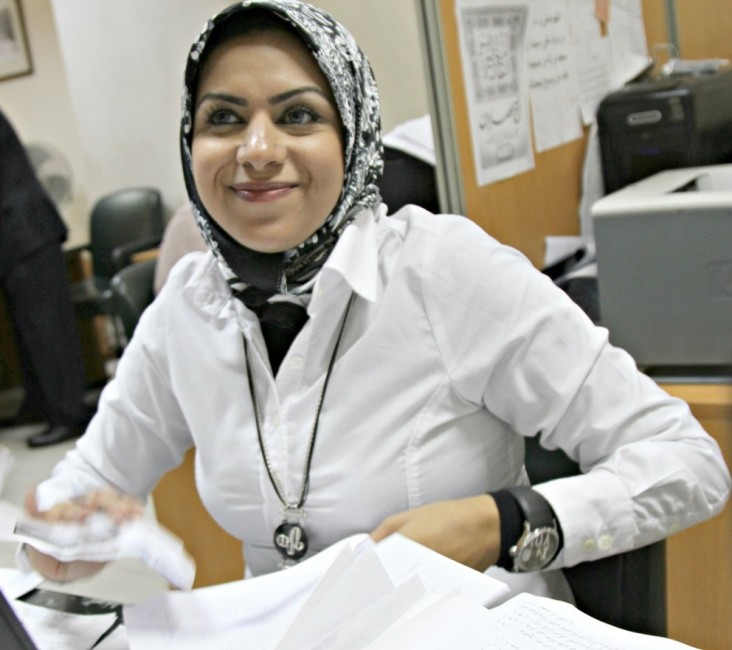
Overview
Over 800,000 job seekers enter the Egyptian labor market annually, but businesses have not been able to keep pace with the number of jobs needed. The unemployment rate was 5.2 percent in 1980 and has since risen to 12.8 percent. Many seek employment with small and medium enterprises (SMEs), as they constitute more than 95 percent of private enterprises and generate over 80 percent of private sector employment in Egypt. But while incomes have risen across the board since 1975, SMEs account for only ten percent of investment in Egypt and 25 percent of GDP.
Enhancing the growth and profitability of small and medium enterprises is essential to creating employment (especially among women and youth), as well as promoting trade and investment to increase real growth rates. Focusing on SMEs promotes inclusiveness and sustainability, as SMEs are both labor intensive (as opposed to capital intensive) and geographically widespread and thus able to create jobs for youth and women in economically disadvantaged areas. Further, since SMEs dominate the Egyptian economic landscape, addressing their constraints is fundamental to growing the business economy more broadly.
Policy Environment
A primary constraint is the complicated, costly, and time-consuming process for registering businesses, securing operating licenses, and complying with complex tax and other reporting requirements. As a result, many SMEs shy away from formalization, limiting the ability of firms to obtain finance, and leading to low rates of innovation. USAID has helped by improving the business and regulatory environment to promote private sector competitiveness. This includes scaling up and improving one-stop shop business service centers to help reduce the bureaucratic procedures faced by new firms, thus reducing their business risk and encouraging formalization. Addressing this constraint provides opportunities for small enterprises to grow and expand into dynamic medium-sized enterprises, and ultimately mature as thriving large enterprises. To complement this activity and ensure that the laws and regulations governing the labor market are conducive to private sector and employment growth, USAID will help to build the capacity of business associations and select NGOs to advocate for policies that promote workforce development and improve the quality of Egypt’s labor force.
Workforce Development
Another constraint to SME growth is low employability of Egypt’s youth. Secondary education is primarily rote memorization, and technical secondary schools do not provide students with marketable skills to enhance their employability. Further, schools lack linkages with the private sector to prepare students for the needs of the market and connect students with employment opportunities. USAID is helping technical secondary schools improve their capacity to provide students with marketable skills to enhance their employability and build strong and sustainable linkages with the private sector. Support will also be given to build the capacity of selected firms in key sectors to provide in-house vocational training and implement human development strategies to better recruit, train, and retain their staff. Through USAID activities, thousands of youth and women will gain productive employment (including self-employment) through improved technical education systems, employment skills, and workforce development.
Entrepreneurship
A third constraint is a lack of private sector innovation and growth through entrepreneurship. Schools and universities do not focus on the innovation and critical thinking needed for establishing start-ups that will meet market needs and flourish – and entrepreneurs lack access to market information and advisory services to make up for this deficit. USAID is working with private sector partners to enhance entrepreneurship skills; improve SME access to technology, market information, and financing; and help new firms evolve into more sophisticated businesses to meet market needs. Through increasing the number of start-ups and developing their ability to innovate and grow, USAID assistance should enable hundreds of SMEs and entrepreneurs to see business sales growth as a result of improved integration with lead firms of fast growing value chains, streamlined business procedures, simplified regulations, and improved business practices.
Current Activities
Supporting Entrepreneurship and Enterprise Development promotes growth and competitiveness of SMEs by improving their access to high-quality public and private services, including support in obtaining accurate market information, developing business plans, and gaining access to finance. The project will focus on 3-5 selected value chains, with an emphasis on SMEs that are woman-owned or have the potential to hire significant numbers of women and youth. Implementing Partner: AECOM; Life of Project: November 1, 2015-October 31, 2019; Total USAID Funding: $22.9 million. Bilateral Agreement: Trade and Investment Promotion in Egypt (TIPE). View Fact Sheet
Workforce Improvement and Skills Enhancement will improve technical secondary education and labor skills; create job opportunities; improve the performance of the private sector though enhanced labor productivity; and advocate for policy and regulatory reforms related to workforce development and labor market efficiency. Implementing Partner: Management Training Corporation; Life of Project: November 1, 2015-October 31, 2019; Total USAID Funding: $22.1 million. Bilateral Agreement: Trade and Investment Promotion in Egypt (TIPE). View Fact Sheet
Egyptian-American Enterprise Fund (EAEF): The EAEF is a United States Government-funded private entity aimed at promoting financial inclusion and job creation, as well as increasing foreign and domestic investment in Egypt, with a broader target of long-term sustainable economic development. The EAEF’s primary mission is to stimulate the Egyptian private sector by providing access to investment capital and loans, modern technologies and best business practices to SMEs, while also achieving financial profitability. The fund, currently capitalized at $180 million, is led by a board of directors that is primarily comprised of Egyptian-American and Egyptian nationals and advised by Lorax Capital Partners, a financial services institution led by an experienced Egyptian management team. Implementing Partner: EAEF; Life of Project: 2012-2016; Total USAID Funding: up to $300 million.








Comment
Make a general inquiry or suggest an improvement.